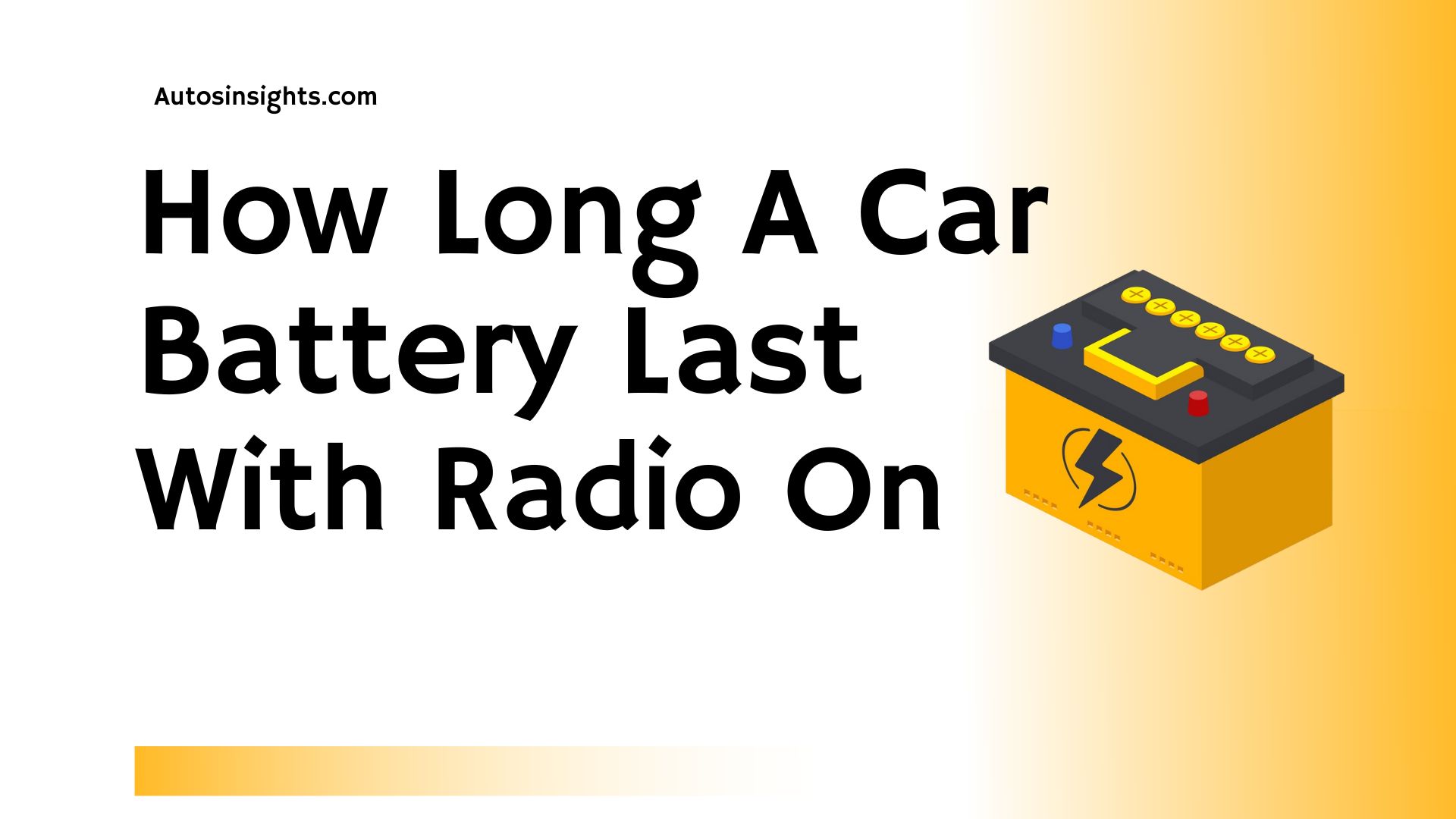How Long Does A Car Radio Last On Battery

The question of how long a car radio can run on battery power is a common one, especially if you're planning a camping trip, a long wait in your vehicle, or simply want to understand your car's electrical system better. The answer isn't straightforward, as it depends on several factors. Let's delve into the details.
Understanding the Drain: Power Consumption and Battery Capacity
The lifespan of a car radio on battery power is primarily determined by two key elements: the radio's power consumption (measured in amps) and the car battery's capacity (measured in amp-hours, or Ah). A standard car battery has a capacity ranging from 45Ah to 70Ah, though larger vehicles and those with more electrical demands might use batteries with higher capacities. The radio's power consumption is typically listed in the owner's manual or on a sticker on the radio itself. It could range from 1 amp to 5 amps, or even higher for high-end systems with amplifiers.
To estimate the runtime, divide the battery's capacity (in Ah) by the radio's current draw (in amps). For example, if you have a 60Ah battery and a radio drawing 2 amps, the theoretical runtime would be 60Ah / 2A = 30 hours. However, this is a very rough estimate and doesn't account for several real-world considerations.
Factors Affecting Radio Runtime
Several factors can significantly impact how long your radio can run on the battery:
- Battery Age and Condition: A new, fully charged battery will obviously last longer than an older, partially depleted one. Over time, batteries lose capacity due to sulfation and other degradation processes. A battery nearing the end of its life might only deliver a fraction of its rated capacity. Regular battery testing is crucial, especially if your car is more than a few years old.
- Radio Volume and Features: Higher volume levels demand more power from the amplifier, significantly increasing current draw. Features like Bluetooth, CD players, and especially high-powered amplifiers, all contribute to increased battery drain. Using these features sparingly will extend your radio's runtime.
- External Temperature: Extreme temperatures, both hot and cold, can negatively affect battery performance. Cold temperatures, in particular, reduce a battery's ability to deliver current.
- Parasitic Draw: Even when the car is off, various electronic components (alarm systems, engine control units, etc.) draw a small amount of current, known as parasitic draw. This constant drain reduces the battery's overall capacity available for the radio.
- Battery State of Charge (SOC): A fully charged battery will obviously last longer. However, repeatedly discharging a car battery too deeply can damage it and shorten its lifespan. It's generally recommended to avoid discharging a lead-acid battery below 50% SOC.
- Alternator Condition: While the engine is running, the alternator is responsible for powering the car's electrical systems and recharging the battery. If the alternator is faulty, the battery might not be fully charged, reducing the radio's potential runtime.
Practical Considerations and Real-World Examples
While the theoretical calculation of 30 hours (from our example) seems promising, realistically, you should expect significantly less runtime. Consider this: if your battery is only at 80% charge, and you factor in a small parasitic draw and the inefficiency of the radio's amplifier, the runtime might be closer to 15-20 hours.
Imagine you're stranded in your car during a winter storm. You need to keep the radio on for news updates and to maintain contact with emergency services via Bluetooth. In such a scenario, it's crucial to conserve battery power. Keep the volume low, turn off unnecessary features like the CD player, and only use the radio intermittently. If possible, run the engine briefly every few hours to recharge the battery (but be mindful of carbon monoxide poisoning – ensure proper ventilation).
Another example: a mechanic diagnosing an electrical issue might need to run the radio to check its functionality. However, they are also using diagnostic tools that draw power. Therefore, they should limit the radio usage to avoid completely draining the battery and potentially causing further complications.
Best Practices for Preserving Battery Life
Here are a few tips to maximize your radio's runtime and prolong your battery's life:
- Ensure your battery is in good condition. Get it tested regularly.
- Avoid prolonged radio use with the engine off.
- Keep the volume at a reasonable level.
- Turn off unnecessary features.
- Consider a portable power bank for extended listening. These can be charged at home and used to power the radio without draining the car's battery.
- If stranded, use the radio sparingly and run the engine periodically (with caution).
By understanding the factors that influence radio runtime and adopting these best practices, you can enjoy your car radio without risking a dead battery.
